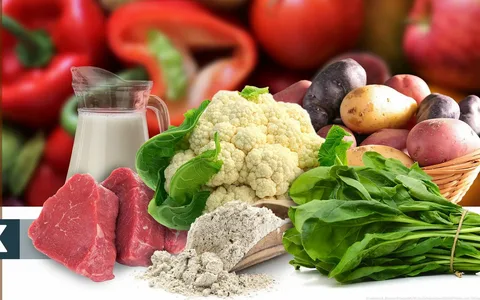Introduction
Stress is a common phenomenon in today’s fast-paced world, affecting mental and physical health alike. While lifestyle changes and stress management techniques play crucial roles in combating stress, vitamins also play a significant part in supporting the body’s stress response mechanisms. This guide explores how various vitamins contribute to stress reduction and overall well-being.
Understanding Stress and Its Impact
What is stress and how does it affect the body?
Stress is the body’s response to demands or pressures, whether they are physical, emotional, or psychological. It triggers a cascade of hormonal responses that prepare the body for action, known as the fight-or-flight response.
FAQs on Stress and Vitamins
How do vitamins help in reducing stress?
Vitamins play several roles in stress reduction. For example, vitamin B complex supports nerve function and energy production, crucial during stressful periods.
Which vitamins are most effective for stress reduction?
Vitamins C and E are potent antioxidants that protect against stress-induced oxidative damage. Vitamin D supports mood regulation and mental health, influencing stress resilience.
Can vitamins alone reduce stress levels?
While vitamins are essential, stress reduction is multifaceted. They complement healthy lifestyle choices, including proper nutrition, exercise, and stress management techniques.
What role does vitamin B play in stress management?
Vitamin B complex, including B1 (thiamine), B2 (riboflavin), B3 (niacin), B6 (pyridoxine), B9 (folate), and B12 (cobalamin), supports energy metabolism, nerve function, and mood regulation, which are critical during stressful times.
How does vitamin C help combat stress?
Vitamin C is a potent antioxidant that helps mitigate the oxidative stress caused by elevated cortisol levels during stress. It supports the immune system and overall health.
What is the connection between vitamin D and stress reduction?
Vitamin D plays a role in regulating mood and may help alleviate symptoms of depression and anxiety, often associated with chronic stress.
Which foods are rich in stress-reducing vitamins?
Citrus fruits, bell peppers, leafy greens, nuts, seeds, fatty fish, and fortified dairy products are rich sources of vitamins C, E, B complex, and D, supporting stress reduction through balanced nutrition.
Are there specific vitamin supplements recommended for stress relief?
Supplements containing vitamin B complex, vitamin C, and vitamin D are commonly recommended to support stress reduction, especially during periods of heightened stress or deficiency.
Can vitamins help with stress-related symptoms like fatigue and insomnia?
Yes, vitamins such as B complex vitamins help convert food into energy, combating fatigue. Vitamin D may also aid in regulating sleep patterns, indirectly supporting stress management.
How does vitamin E contribute to stress reduction?
Vitamin E, as an antioxidant, protects cell membranes from oxidative stress. It supports overall immune function and may help mitigate stress-related cellular damage.
Conclusion
Understanding the role of vitamins in stress reduction underscores the importance of balanced nutrition in overall well-being. While vitamins play a supportive role, holistic approaches to stress management, including healthy lifestyle choices and stress reduction techniques, are essential for long-term stress resilience.
- What Does Ghosting Say About The Current Dating Culture? - May 31, 2025
- The Emotional Toll Of Ghosting And Why It’s More Harmful Than You Think - May 31, 2025
- Nu-Derm Skin System Near Whyteleafe, Surrey - May 31, 2025

